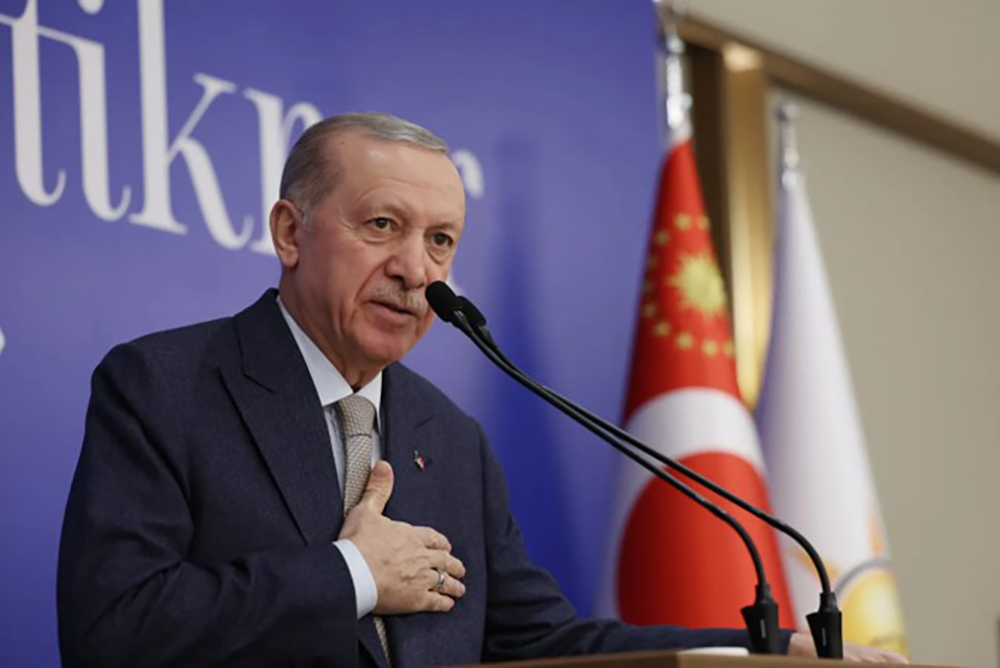
土耳其正計(jì)劃制定新規(guī)定,旨在遏制大型科技公司的主導(dǎo)地位,。該國(guó)效仿歐盟的監(jiān)管方式,,但此舉可能招致美國(guó)的報(bào)復(fù)。
土耳其高級(jí)官員向彭博社透露,,該法案即將提交議會(huì)審議,。該法案旨在禁止蘋(píng)果(Apple Inc.)、Alphabet旗下的谷歌(Google),、Meta Platforms及亞馬遜(Amazon.com Inc.)等科技企業(yè)在搜索引擎,、應(yīng)用商店或全球電商平臺(tái)上偏袒自家服務(wù)。該法案得到了執(zhí)政黨支持,,并與土耳其反壟斷機(jī)構(gòu)協(xié)同擬定,。
這些因討論內(nèi)部事務(wù)而要求匿名的官員補(bǔ)充稱(chēng),違規(guī)企業(yè)或?qū)⒚媾R高達(dá)其年度營(yíng)收10%的罰款,。
此舉正值美國(guó)與歐盟在數(shù)字監(jiān)管問(wèn)題上關(guān)系愈發(fā)緊張之際,。歐盟于2023年5月頒布的《數(shù)字市場(chǎng)法》(DMA),旨在通過(guò)為“守門(mén)人”平臺(tái)設(shè)定義務(wù)來(lái)遏制惡性競(jìng)爭(zhēng)行為。土耳其的提案與歐盟的做法一致,,或?qū)?dǎo)致該國(guó)與美國(guó)的貿(mào)易關(guān)系趨于緊張,。
美國(guó)總統(tǒng)唐納德·特朗普嚴(yán)厲抨擊歐盟的《數(shù)字市場(chǎng)法》,稱(chēng)其為針對(duì)美國(guó)科技公司的“海外敲詐”,。作為回應(yīng),,他威脅要征收關(guān)稅。
官員們表示,,該提案將要求如蘋(píng)果這樣的封閉式生態(tài)系統(tǒng)允許用戶從其平臺(tái)外部安裝第三方應(yīng)用程序,。以蘋(píng)果公司為例,這意味著允許用戶從應(yīng)用商店以外下載iPhone和iPad應(yīng)用程序,,就如同谷歌允許在安卓設(shè)備上進(jìn)行側(cè)載應(yīng)用一樣,。
該提案還將限制平臺(tái)在未經(jīng)用戶明確授權(quán)的情況下處理用戶數(shù)據(jù),并限制它們將這些數(shù)據(jù)用于商業(yè)目的的方式,。
此外,,科技公司需向商業(yè)用戶(如應(yīng)用程序開(kāi)發(fā)者、廣告商和電商賣(mài)家)提供有關(guān)服務(wù)范圍,、性能和定價(jià)的明確信息,。
該提案在頒布前仍需修訂,其最終條款在立法過(guò)程中或有所調(diào)整,。(財(cái)富中文網(wǎng))
譯者:中慧言-王芳
土耳其正計(jì)劃制定新規(guī)定,,旨在遏制大型科技公司的主導(dǎo)地位。該國(guó)效仿歐盟的監(jiān)管方式,,但此舉可能招致美國(guó)的報(bào)復(fù),。
土耳其高級(jí)官員向彭博社透露,該法案即將提交議會(huì)審議,。該法案旨在禁止蘋(píng)果(Apple Inc.),、Alphabet旗下的谷歌(Google)、Meta Platforms及亞馬遜(Amazon.com Inc.)等科技企業(yè)在搜索引擎,、應(yīng)用商店或全球電商平臺(tái)上偏袒自家服務(wù),。該法案得到了執(zhí)政黨支持,并與土耳其反壟斷機(jī)構(gòu)協(xié)同擬定,。
這些因討論內(nèi)部事務(wù)而要求匿名的官員補(bǔ)充稱(chēng),,違規(guī)企業(yè)或?qū)⒚媾R高達(dá)其年度營(yíng)收10%的罰款。
此舉正值美國(guó)與歐盟在數(shù)字監(jiān)管問(wèn)題上關(guān)系愈發(fā)緊張之際,。歐盟于2023年5月頒布的《數(shù)字市場(chǎng)法》(DMA),,旨在通過(guò)為“守門(mén)人”平臺(tái)設(shè)定義務(wù)來(lái)遏制惡性競(jìng)爭(zhēng)行為。土耳其的提案與歐盟的做法一致,,或?qū)?dǎo)致該國(guó)與美國(guó)的貿(mào)易關(guān)系趨于緊張,。
美國(guó)總統(tǒng)唐納德·特朗普嚴(yán)厲抨擊歐盟的《數(shù)字市場(chǎng)法》,,稱(chēng)其為針對(duì)美國(guó)科技公司的“海外敲詐”。作為回應(yīng),,他威脅要征收關(guān)稅,。
官員們表示,該提案將要求如蘋(píng)果這樣的封閉式生態(tài)系統(tǒng)允許用戶從其平臺(tái)外部安裝第三方應(yīng)用程序,。以蘋(píng)果公司為例,這意味著允許用戶從應(yīng)用商店以外下載iPhone和iPad應(yīng)用程序,,就如同谷歌允許在安卓設(shè)備上進(jìn)行側(cè)載應(yīng)用一樣,。
該提案還將限制平臺(tái)在未經(jīng)用戶明確授權(quán)的情況下處理用戶數(shù)據(jù),并限制它們將這些數(shù)據(jù)用于商業(yè)目的的方式,。
此外,,科技公司需向商業(yè)用戶(如應(yīng)用程序開(kāi)發(fā)者、廣告商和電商賣(mài)家)提供有關(guān)服務(wù)范圍,、性能和定價(jià)的明確信息,。
該提案在頒布前仍需修訂,其最終條款在立法過(guò)程中或有所調(diào)整,。(財(cái)富中文網(wǎng))
譯者:中慧言-王芳
Turkey is planning new rules to rein in the dominance of major tech firms, imitating the European Union’s regulatory approach at the risk of provoking U.S. retaliation.
The bill, set to be submitted to parliament soon, would prevent technology companies such as Apple Inc., Alphabet Inc.’s Google, Meta Platforms Inc. and Amazon.com Inc. from favoring their own services in search engines, app stores, or marketplaces, senior Turkish officials told Bloomberg. The bill is backed by the ruling party and was prepared in collaboration with Turkey’s antitrust authority.
Failure to comply could result in fines of up to 10% of a company’s annual revenue, added the officials, who asked not to be identified discussing private matters.
The move comes amid heightened tensions between the U.S. and the European Union over digital regulations. The EU’s Digital Markets Act or DMA, enacted in May 2023, aims to curb anti-competitive practices by imposing obligations on “gatekeeper” platforms. Turkey’s proposal aligns with the EU’s approach and could risk straining the nation’s trade ties with Washington.
US President Donald Trump has strongly criticized the EU’s DMA, calling it “overseas extortion” targeting American tech firms. In response, he has threatened to impose tariffs.
Under the proposal, closed ecosystems like Apple’s would be required to let users install third-party apps from outside of their platforms, the officials said. In Apple’s case, this means allowing downloads to iPhones and iPads from outside of the App Store, similar to how Google allows sideloading on Android devices.
It would also restrict platforms from processing user data without explicit consent and limit how they use that data for commercial purposes.
Additionally, tech firms would be required to provide commercial users — such as app developers, advertisers and marketplace sellers — with clear information on service scope, performance, and pricing.
The proposal is still subject to revisions before being enacted, and its final provisions could change during the legislative process.






